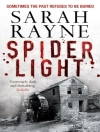‘Depuis quelques mois, il n’était question à l’Opéra que de ce fantôme en habit noir qui se promenait comme une ombre du haut en bas du bâtiment, qui n’adressait la parole à personne, à qui personne n’osait parler et qui s’évanouissait, du reste, aussitôt qu’on l’avait vu, sans qu’on pût savoir par où ni comment.
Toutes prétendaient avoir rencontré plus ou moins cet être extra-naturel et avoir été victimes de ses maléfices. Et celles qui en riaient le plus fort n’étaient point les plus rassurées. Quand il ne se laissait point voir, il signalait sa présence ou son passage par des événements drolatiques ou funestes dont la superstition quasi générale le rendait responsable.
Avait-on à déplorer un accident, une camarade avait elle fait une niche à l’une de ces demoiselles du corps de ballet, une houppette à poudre de riz était elle perdue? Tout était de la faute du fantôme, du fantôme de l’Opéra!… Et il avait, naturellement, une tête de mort. Tout cela était-il sérieux?’
Об авторе
Gaston Louis Alfred Leroux was a French journalist and author of detective fiction.
In the English-speaking world, he is best known for writing the novel The Phantom of the Opera (Le Fantôme de l’Opéra, 1910), which has been made into several film and stage productions of the same name, such as the 1925 film starring Lon Chaney, and Andrew Lloyd Webber’s 1986 musical. It was also the basis of the 1990 novel Phantom by Susan Kay.
Leroux went to school in Normandy and studied law in Paris, graduating in 1889. He inherited millions of francs and lived wildly until he nearly reached bankruptcy. Then in 1890, he began working as a court reporter and theater critic for L’Écho de Paris. His most important journalism came when he began working as an international correspondent for the Paris newspaper Le Matin. In 1905 he was present at and covered the Russian Revolution. Another case he was present at involved the investigation and deep coverage of an opera house in Paris, later to become a ballet house. The basement consisted of a cell that held prisoners in the Paris Commune, which were the rulers of Paris through much of the Franco-Prussian war.












